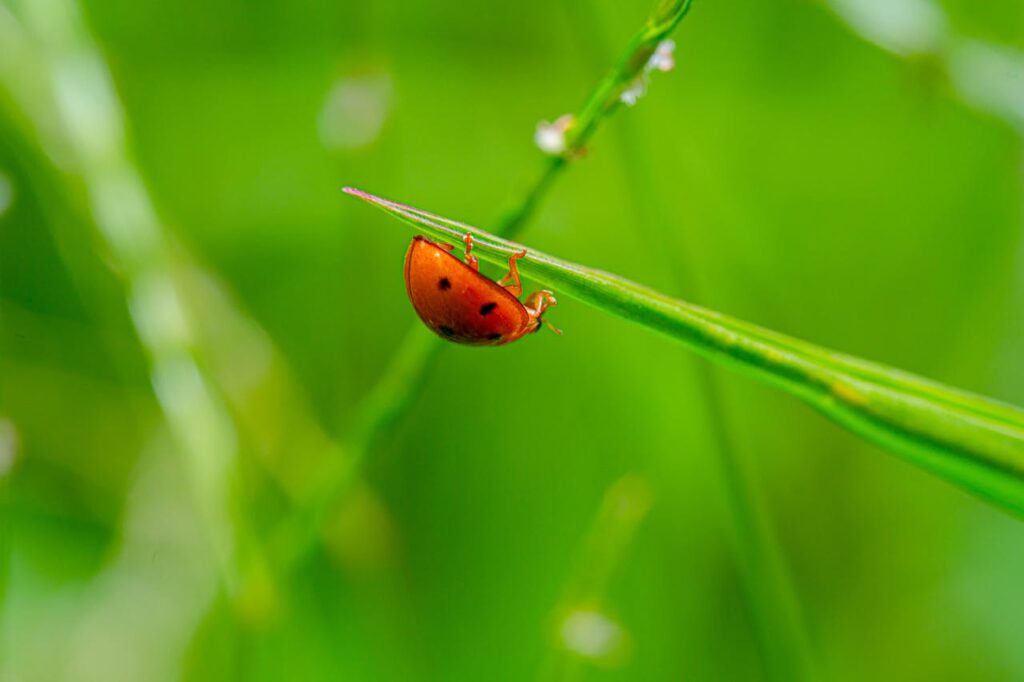Have you ever wondered what makes Madison’s gardens and parks so vibrant and healthy? Aside from the hardworking gardeners and caretakers, there’s a hidden force working behind the scenes—beneficial insects. In this article, we’ll explore the role of these incredible creatures in Madison’s ecosystem, focusing on how they help control pests naturally.
Understanding Beneficial Insects
Before diving into the specifics of Madison’s ecosystem, let’s first understand what beneficial insects are. These insects play crucial roles in our environment, including pollination, pest control, and even soil health. Not all insects are pests; some are our allies in the fight against unwanted bugs and environmental issues.
What Are Beneficial Insects?
Beneficial insects are those that provide some form of advantages to the environment, agriculture, or humans. They fall into several categories:
- Predators: These insects feed on other insects, helping to control pest populations.
- Parasitoids: These lay their eggs on or inside other insects, usually pests. The larvae then feed on the host.
- Pollinators: Insects like bees and butterflies that help plants reproduce by pollinating flowers.
- Decomposers: These break down organic matter, improving soil health.
Common Beneficial Insects in Madison, Alabama
In Madison, you’ll likely come across several types of beneficial insects. Each has a specific role in maintaining the balance of our local ecosystem.
| Beneficial Insect | Role in the Ecosystem |
|---|---|
| Ladybugs | Predators that feed on aphids, mites, and other pests. |
| Bees | Pollinators crucial for the reproduction of many plants. |
| Lacewings | Predators whose larvae feed on aphids, caterpillars, and mealybugs. |
| Parasitic Wasps | Parasitoids that lay eggs inside pest insects, leading to their demise. |
| Ground Beetles | Predators that consume pests like slugs and caterpillars. |
| Dung Beetles | Decomposers that break down animal waste, enhancing soil quality. |
How Beneficial Insects Help Control Pests Naturally
You might be wondering how these tiny creatures can have such a significant impact. The answer lies in their natural behaviors and diets.
Predation and Parasitism
One of the primary ways beneficial insects help is through predation and parasitism. Ladybugs, for example, are voracious predators of aphids. A single ladybug can consume up to 50 aphids a day! Parasitic wasps are another excellent example. These wasps lay their eggs inside pest insects, and when the larvae hatch, they consume the host from the inside out.
Pollination
Pollinators like bees and butterflies are vital for the reproduction of many plants. Without them, many of our local flowers, fruits, and vegetables would fail to reproduce. In Madison, urban gardens, farms, and even flower beds benefit greatly from these flying helpers.
Decomposition
Decomposers like dung beetles and certain types of flies break down organic waste. This process enriches the soil, making it more fertile and better able to support plant life. Improved soil health leads to healthier plants, which in turn can better resist pest infestations.

Highlighting Local Beneficial Insects
Now that we’ve covered the basics, let’s zoom in on some of the beneficial insects you might encounter in Madison.
Ladybugs
You probably recognized the bright red, spotted insect known as the ladybug. These beetles are incredibly effective at controlling aphid populations. Ladybugs also feed on mites, scale insects, and other soft-bodied pests.
Bees
Bees are more than just producers of honey. They are vital pollinators that affect the growth and yield of many crops. Madison is home to various species of bees, including the common honeybee and the bumblebee. Both play crucial roles in pollination.
Lacewings
Lacewings are another predatory insect beneficial for our local gardens. Their larvae are often referred to as “aphid lions” due to their appetite for aphids. It’s not uncommon to find these insects near heavily infested plants, taking care of business.
Parasitic Wasps
While their name might sound alarming, parasitic wasps are small, harmless to humans, and incredibly beneficial. They lay their eggs inside pest insects, which eventually kills the host, keeping pest populations in check.
Ground Beetles
Ground beetles are often overlooked, but they play a critical role in pest control. These beetles are nocturnal hunters, feeding on slugs, caterpillars, and other harmful insects.
Dung Beetles
It might seem distasteful, but dung beetles are essential for soil health. By breaking down animal waste, they recycle nutrients back into the soil, improving its quality and structure.
Encouraging Beneficial Insects in Your Garden
Now that you know which beneficial insects are common in Madison, how do you attract them to your garden or yard?
Planting Flowering Plants
One of the easiest ways to attract beneficial insects is by planting a variety of flowering plants. Bees, butterflies, and other pollinators are naturally drawn to flowers.
Providing Shelter
Insects need shelter from harsh weather and predators. Providing a habitat, such as insect hotels, piles of leaves, or deadwood, can make your garden more inviting.
Avoiding Pesticides
Many pesticides are non-discriminatory and can kill beneficial insects. Opt for organic or natural pest control methods to keep these helpful insects safe.
Water Sources
A shallow water source can attract bees and other insects. Make sure it’s shallow enough for them to get a drink without drowning.

The Bigger Picture: Ecosystem Balance
When beneficial insects thrive, the entire ecosystem benefits. Here’s how:
Reduced Chemical Use
With more beneficial insects, there’s less need for chemical pesticides. This reduces pollution and helps to protect waterways and non-target species, including humans.
Biodiversity
Beneficial insects contribute to the overall biodiversity of an area. A diverse ecosystem is more resilient to diseases, invasive species, and other threats.
Enhanced Plant Health
With pests under control and better pollination, plants are healthier and can better withstand environmental stressors. Healthy plants contribute to a robust ecosystem, providing food and shelter for various wildlife.
Challenges in Madison, Alabama
While beneficial insects offer numerous advantages, they also face challenges. Urbanization, climate change, and pesticide use can all negatively impact their populations.
Urbanization and Habitat Loss
As Madison continues to grow, the natural habitats of many beneficial insects are being destroyed. While urban gardens and green spaces help, they often cannot fully replace lost habitats.
Climate Change
Climate change is another significant threat. Many insects are sensitive to temperature changes and extreme weather events. As the climate changes, the distribution and behavior of these insects may also change, potentially disrupting local ecosystems.
Pesticides
Despite their benefits, pesticides are still widely used. The indiscriminate use of these chemicals can kill beneficial insects along with pests, making pest control more difficult in the long run.
Community Efforts and Initiatives
The good news is that many community initiatives in Madison are working to support beneficial insects. Local gardens, schools, and organizations are coming together to create environments where these insects can thrive.
Urban Gardens
Urban gardens in Madison provide excellent habitats for beneficial insects. These gardens incorporate a variety of plants, creating a biodiverse environment that supports insect life.
Educational Programs
Educational programs aimed at both children and adults focus on the importance of beneficial insects. These programs teach people how to identify beneficial insects and incorporate them into their gardening practices.
Conservation Efforts
Local conservation efforts are also crucial. These projects often involve preserving natural habitats, planting native species, and raising awareness about the importance of beneficial insects.
Practical Steps to Support Beneficial Insects
Interested in joining the cause? Here are some practical steps you can take to support beneficial insects in Madison:
Start a Garden
Even a small garden can provide important resources for beneficial insects. Plant a mix of flowering plants, veggies, and herbs to attract a variety of insects.
Build an Insect Hotel
Insect hotels provide shelter for various species. They are easy to build and can be a fun project for the whole family.
Reduce Pesticide Use
Whenever possible, use natural pest control methods. Companion planting, natural predators, and manual removal are all effective ways to keep pests at bay without harming beneficial insects.
Participate in Community Projects
Join local community gardens or conservation projects. Not only will you be helping beneficial insects, but you’ll also meet like-minded individuals and learn more about your local ecosystem.
Conclusion
Beneficial insects are vital to Madison’s ecosystem, offering natural pest control, pollination, and soil health benefits. By understanding their roles and taking steps to support them, we can contribute to a healthier, more balanced environment. So next time you see a bee buzzing around or a ladybug munching on aphids, remember the crucial work these tiny allies are doing to keep Madison’s ecosystem thriving.

